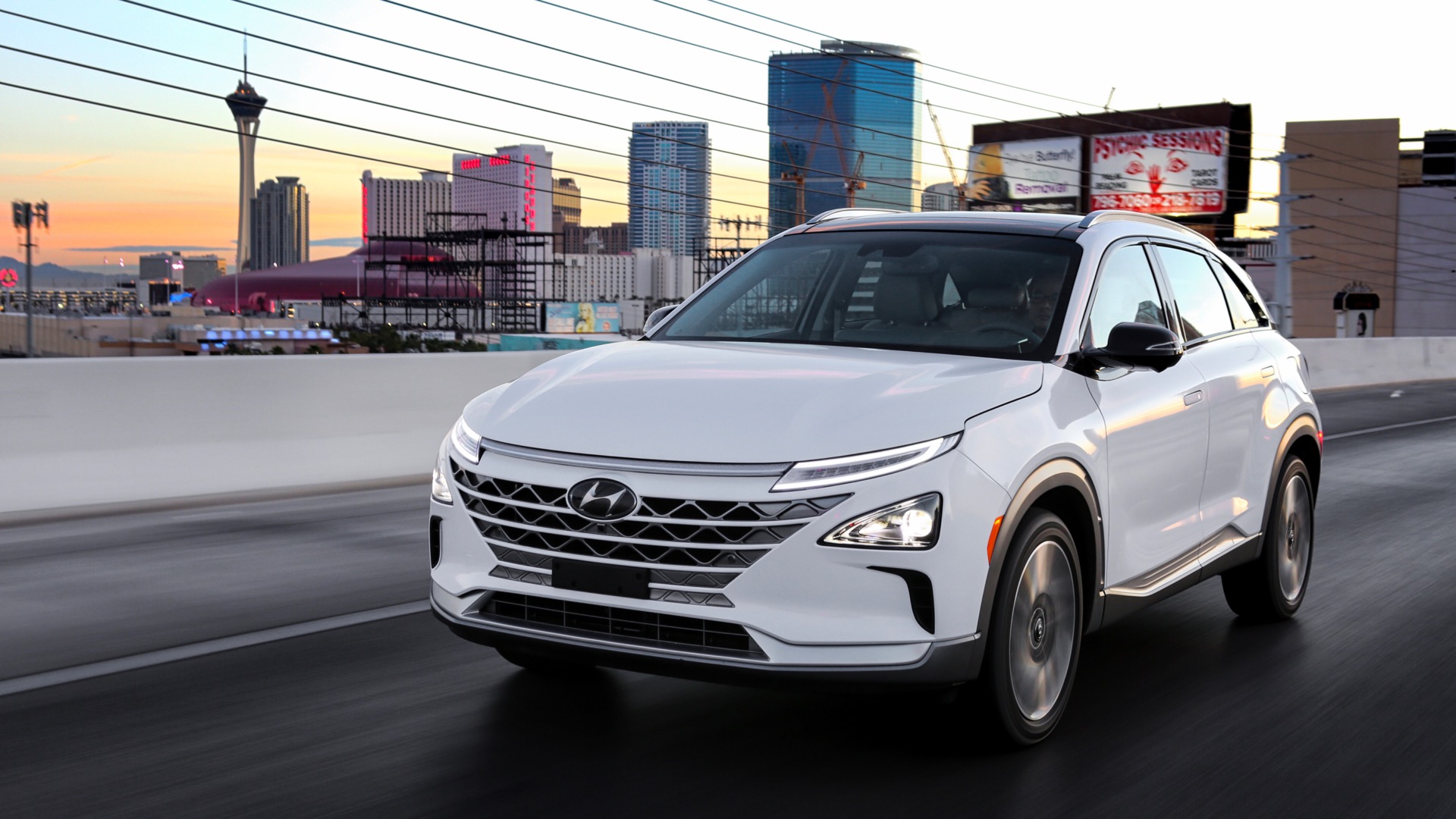

Hyundai announced Tuesday a plan to invest ₩7.6 trillion KRW ($6.75 billion USD) in hydrogen fuel cell technology as part of a plan it calls “FCEV Vision 2030.”
Hydrogen fuel cells combine elemental hydrogen with the oxygen in the air, capturing the resulting energy for conversion into electricity, leaving only a byproduct of water. Hyundai sees the cells resulting from its FCEV Vision 2030 program powering a “hydrogen society,” wherein vehicles of all kinds utilize hydrogen fuel cells for propulsion. Everything from drones to trains could operate using energy from fuel cells according to Hyundai, which revealed its plan at the groundbreaking ceremony for a new fuel cell factory in Chungju, South Korea.
Hyundai affiliate Mobis will oversee the plant, which should be capable of churning out 40,000 fuel cells per year by 2022, boosting production from its capacity today of 3,000 per annum. By 2030, Hyundai Mobis expects as many as 6.5 million fuel cells will be in use worldwide, a demand which it intends to satisfy with annual production of 700,000 cells, 500,000 of which would power fuel cell electric vehicles (FCEVs) like the Hyundai Nexo, which is slated to launch in California by the end of the year.
Hyundai predicts that its fuel cell vehicles will have 10 percent reduced ownership costs versus traditional methods of transportation. The Korean automaker projects that economic benefits won’t stop there, and anticipates the creation of 51,000 jobs related to its fuel cell business.
“Hyundai Motor Group, the global pioneer of the commercial production of FCEV, is taking a bold step forward to expedite the realization of a hydrogen society,” stated Executive Vice Chairman of Hyundai Motor Group, Euisun Chung. “We will expand our role beyond the automotive transportation sector and play a pivotal role in global society’s transition to clean energy by helping make hydrogen an economically viable energy source. We are confident that hydrogen power will transcend the transportation sector and become a leading global economic success.”
Hyundai did not state whether its plans to refine internal combustion engines as part of its SmartStream program are affected by this development—The Drive contacted Hyundai for comment, and we will update when we receive a response.
Hyundai is not the sole advocate for fuel cell electric vehicles. Toyota currently sells the Mirai FCEV in markets where fuel cell infrastructure supports its use and hopes to sell commercial FCEVs such as trucks and buses. Should its FCEV Vision 2030, SmartStream, and electric vehicle programs continue in tandem, Hyundai should be in a favorable position to produce vehicles using the type of propulsion that proves itself most meritorious.
Other automakers that prioritize one type of powertrain technology put themselves at risk of having their eggs in the wrong basket, but Hyundai doesn’t seem at risk of falling behind, even by spreading its resources relatively thin across multiple technological fields. Its electric Kona crossover will be one of the most efficient electric vehicles of the modern era when it goes on sale in 2019, giving Hyundai a healthy lead in the technological race that is EV development.